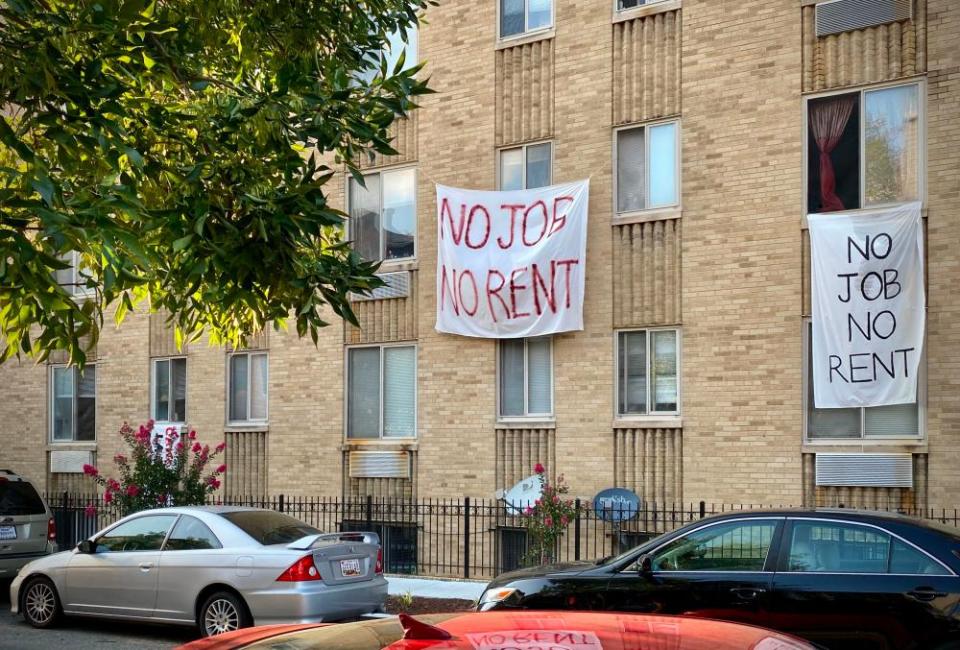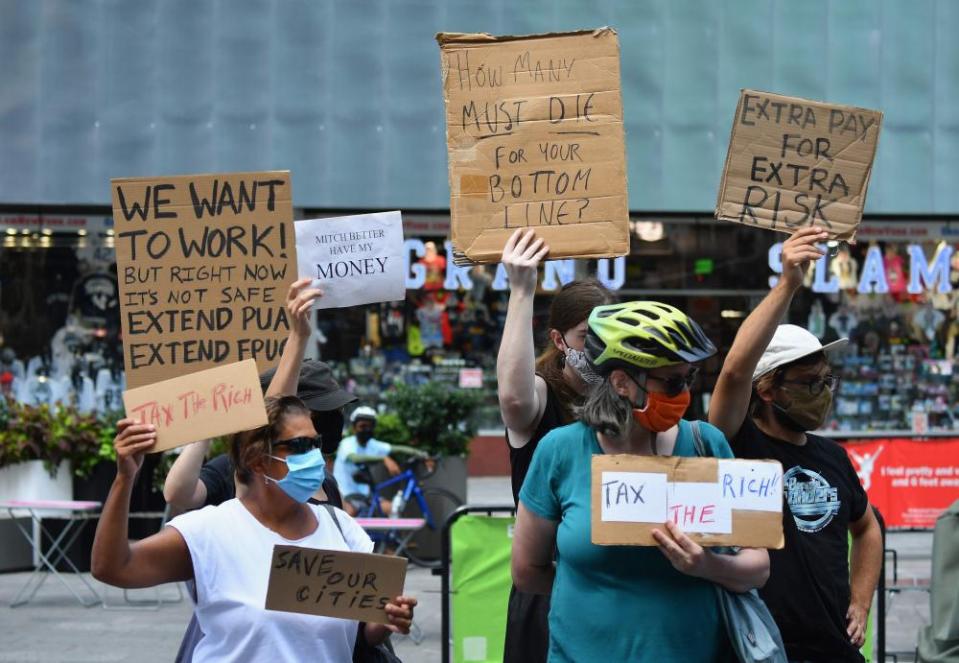Millions of Americans scrape by after benefits expire: 'I lost everything'

A single mother of three children, Sandra Bivin of Denver, Colorado, is now being forced to try to survive on $58 per week on unemployment since the $600 per week expanded unemployment benefits expired on 26 July.
It is not easy.
Before the pandemic hit, Bivin worked as a driver for Uber and Lyft, and had a part-time job in accounting. Because of her part-time position, she doesn’t qualify for pandemic unemployment assistance offered to independent contractors until her regular employment runs out in another seven weeks.
In the meantime, Bivin has struggled to make ends meet and will be ineligible for the $400 per week unemployment benefits from Donald Trump’s executive order when it goes into effect.
“My mortgage alone is $1,100 a month. I already sold my car in order to live off unemployment I was receiving. I’m almost completely out of savings and I have no idea what I’m going to do without the $600,” said Bivin.
The scale of the jobless crisis in America is immense. For 20 straight weeks, new unemployment claims in the US were above 1m. About 30 million Americans claiming jobless benefits are being left to rely on state unemployment benefits while waiting on Trump’s reduced federal benefits of $400 a week to begin if they are eligible to receive them.
Trump’s executive order has been criticized by Democrats and labor groups for circumventing Congress and the obstacles it places on recipients and state unemployment systems that have already been struggling with backlogs of claims and amending claims for recipients to receive back pay for weeks they missed while waiting to be processed.
“My only choice right now is for us to eat the bare minimum, pay what I can toward at least my rent and vehicle payment and hope for the best,” said Michelle Cieslewski, 51, of Cleveland, Ohio, who lost her two jobs in March, in construction and at an auction house, when the pandemic hit.
Single and caring for her 11-year-old grandson, her state unemployment benefits only provide $281 per week.

Across the US stories of scraping by are mounting.
“We didn’t ask for this pandemic and we have no control of it. I was a hard working man before this and if I could find a job paying what I was making I would gladly take it. Unfortunately I can’t,” said Robert Bonner, who lost his job as a line cook at a hotel in Cleveland, Ohio in March. “ I can’t provide for my children with $200 a week.”
In Spring, Texas, Midge Finnell, a single mom with two daughters, was laid off as a job recruiter in early May due to company cuts.
“What I was getting was barely enough to pay my bills. I lost my health insurance. I lost my 401k. I lost everything because the government shut everything down and they don’t even have a plan. It’s not fair,” said Finnell. “I won’t be able to pay rent if we don’t get any relief. There’s so much my mind races over every single day. I can’t sleep.”
Even with the federal expanded benefits of $600 per week, many Americans on unemployment had to rely on food banks or utilize online fundraising tools like GoFundMe to cover gaps in lost income or afford medications and medical care they could no longer pay for due to losing health insurance.
Cody Wessel of St Louis, Missouri, lost his furniture retail job in May 2020, and with it the health insurance he relied on to be able to afford insulin. He started a GoFundMe campaign to try to help cover his insulin costs over the next few months and was able to receive some insulin doses through a charity.
“Now that the extra $600 has ended, my income has been reduced to less than $1,000 a month,” said Wessel. “Without that GoFundMe, I would have no place to live, I would have nothing to eat, I would have no way to go to the doctor, I wouldn’t be able to afford my medicine even with Medicaid. It really saved my life.”
The spending and economic benefits of the $600 enhanced unemployment benefits were supporting millions of jobs, as spikes in coronavirus cases due to business reopenings have stalled or even reversed job recovery. Around 14 million more Americans are unemployed than currently available job openings.
“I can’t pay my rent, electric bill, food, or car payments. I’m able to get the bare minimum with my allotted food stamps,” said Sabrina Wickward Arce, a cosmetologist who is struggling to find a new job in Miami, Florida.
Kat Ferrel of Angelina county, Texas worked as a home healthcare worker before the pandemic and hasn’t been able to return to work because her client passed away.
“I went from getting $1,614 every two weeks to now getting $414 every two weeks,” said Ferrel. “They’ve put us right back in worse shape. Who can live on $414 every two weeks?”

 money
money 